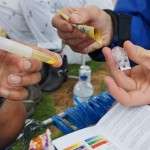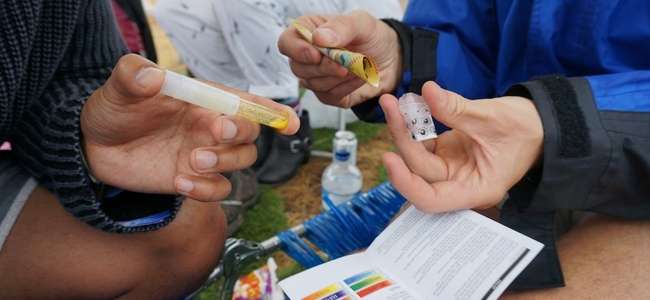In VICE’s ever-evolving quest to go where normal journalists won’t, Australia’s music festival scene was next on their hit-list. This time they specifically targeted the hypocrisy of having a no-tolerance policies for test kits. Overdoses and deaths have been a growing problem for Australia, with six deaths in 2015 at music festivals alone, and more overdoses than in previous years. Seeing the problem for what it is, many Australians connected to the festival/music scenes have called on government officials to change laws to allow for more awareness of the issue. Up until this point, tactics like using sniffer-dogs and treating test-kits as if they were as harmful as the drugs themselves have proven useless and downright hazardous. And in a country that takes more ecstasy than any other, the need for effective policy is becoming more than just an ideal, it’s imperative.
Sadly, at the moment, most Australian officials don’t want to touch the subject, opting instead for essentially ignoring it. Recent comments from NSW Deputy Premier Troy Grant indicate that he’s sticking by the tired old strap-line that providing test-kits will endorse drug use. So instead of changing course and coming up with new ideas to address the problem, the previously mentioned draconian tactics are being ramped up and their use expanded. In response to this, VICE decided that they would conduct their own undercover field tests (on the fields of major Aussie music fests) to see if the use of test-kits would help or hinder this problem.
What they discovered was a mixed bag of responses, but ultimately favored test-kit use. Some festival-goers were paranoid that the journalists were in fact undercover cops and at first refused any contact. Others were more willing to have their drugs tested and, in the process, were opened up to the idea that a lot of these festival sources require much closer scrutiny. Because the typical test kit is easy to use, and can actually identify the substance by color, many participants found that instead of getting the drug they had asked for, they instead got drugs that offered the opposite effect, or were a mix of a variety of different substances. In fact, the cases where the test kits confirmed what buyers already thought they had were few and far between.
Far more striking than the discrepancies, however, were how these revelations impacted festival goers. One festival-goer named Gus, who discovered that what he thought was MDMA turned out to be amphetamine, told VICE writer Roxanne: “The guy I bought it from is a douchebag and shady as hell. I was going to take it without any thought, but now this has got me a little scared.” This initial shock followed by this reconsideration indicates that the awareness provided by the test-kit may actually decrease how many drugs are taken, and could lead to fewer overdoses/deaths.
This, of course, has been the norm in Europe for many years now, especially in cities like Amsterdam where city officials regularly warn tourists about dangerous batches making their rounds. Officials know that drug use will continue whether they provide this awareness or not. The label of “drug-endorsement” is just that, a label that does nothing to help unsuspecting festival goers from being taken advantage of. With any luck, and the continued pressing of Australian authorities, perhaps a different way forward will be imagined that keeps safety in mind without resorting to using ineffective tactics.
H/T: Tonedeaf











